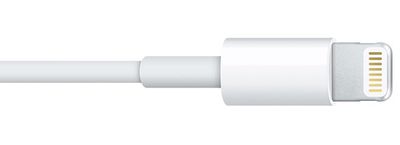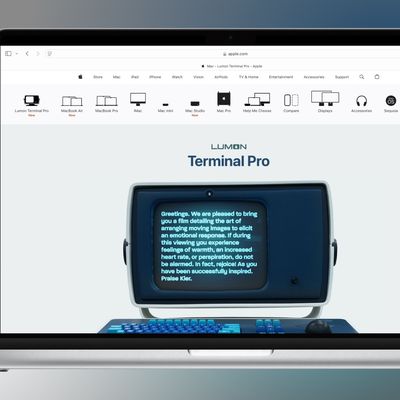Apple to Begin Allowing Accessory Manufacturers to Include Lightning Ports Early Next Year
While Apple's Lightning connector has become ubiquitous across the company's iOS device lineup over the past several years, third-party accessory manufacturers have so far been unable to include ports for the connector on their products. That appears set to change in the relatively near future, however, as Apple has informed members of the company's MFi program that it will begin shipping a version of the Lightning port for third-party use early next year, reports 9to5Mac.
Allowing accessory makers to build-in a Lightning port provides a number of benefits, according to manufacturers briefed during Apple’s MFi Summit. One of the biggest benefits is to reduce costs for manufacturers and simplify the product experience for users by using Lightning to provide power to both an accessory and the iOS device. Dock or battery case manufacturers, for example, would previously have to provide a separate USB cable and power supply to charge an accessory.

The report indicates Apple is also developing a new "slimmed down, low profile version" of the Lightning connector itself currently used in third-party accessories. The new package will offer a simpler and smaller method for building connectors into accessories such as docks and charging cases.
Some two years after introducing the Lightning connector with the iPhone 5, Apple is clearly working to broaden the ecosystem of accessories taking advantage of the versatile space-saving connector. Earlier this year, the company announced new MFi specifications that would allow headphones to connect to devices over Lightning. While the announcement led to speculation that Apple is looking to remove the traditional headphone jack from its devices, at least for now the feature appears intended to provide additional features such as power to headphones.
Popular Stories
While the iPhone 17 Pro and iPhone 17 Pro Max are not expected to launch until September, there are already plenty of rumors about the devices.
Below, we recap key changes rumored for the iPhone 17 Pro models as of March 2025:
Aluminum frame: iPhone 17 Pro models are rumored to have an aluminum frame, whereas the iPhone 15 Pro and iPhone 16 Pro models have a titanium frame, and the iPhone ...
Apple is expected to release iOS 18.4 to the general public as soon as next week, following more than a month of beta testing.
Apple's website says some iOS 18.4 features will be released in "early April," so the update should be out as early as Tuesday, April 1.
Apple this week seeded the iOS 18.4 Release Candidate, which is typically the final beta version, barring the discovery of any...
Leaker Jon Prosser today shared a mockup of what he says the Messages app will look like in iOS 19, demoing an interface with rounded, translucent bubble-shaped navigation buttons at the top and softer, rounder corners for the keyboard and word suggestions.
Jon Prosser's Messages app mockup
The return button, a button for going back to the Messages list, and the FaceTime button have a deeper...
If you pay for iCloud storage on your iPhone, Apple has a new perk for you, at no additional cost.
The new perk is the ability to create invitations in the Apple Invites app for the iPhone, which launched in the App Store last month.
In the Apple Invites app, iCloud+ subscribers can create invitations for any occasion, such as birthday parties, graduations, baby showers, and more. Anyone ...
Apple regularly refreshes the MacBook Pro models, and a new version that uses M5 series chips is in the works. Apple just finished refreshing most of the Mac lineup with M4 chips, and now it's time for the M5. Rumors suggest that we could see the first M5 MacBook Pro models this fall.
Design
There have been no rumors of a design update for the M5 MacBook Pro models that are coming this...
Apple today announced that AirPods Max with a USB-C port will be gaining support for lossless audio and ultra-low latency audio with a firmware update next month, alongside the release of iOS 18.4, iPadOS 18.4, and macOS 15.4.
For context, audio files are typically compressed to keep file sizes smaller. There are lossy compression standards like MP3 and AAC (Advanced Audio Codec), which...
Apple is going all out with promotions for the popular Severance Apple TV+ show today, and as of right now, you'll find a new "Lumon Terminal Pro" listed on Apple's Mac site.
The Lumon Terminal Pro is designed to look similar to the machines that Severance employees like Mark S. and Helly R. use for macrodata refinement. The Terminal features a blue keyboard, a small display with wide...
In the mid-to-late 2000s, Facebook was all about staying connected with friends and family. However, as the social media platform added new features and grew over time, that core experience began to get drowned out.
That changes starting now, according to Meta, which today introduced a new feature that will "bring back the joy" of classic Facebook.
Specifically, Meta has redesigned the...























